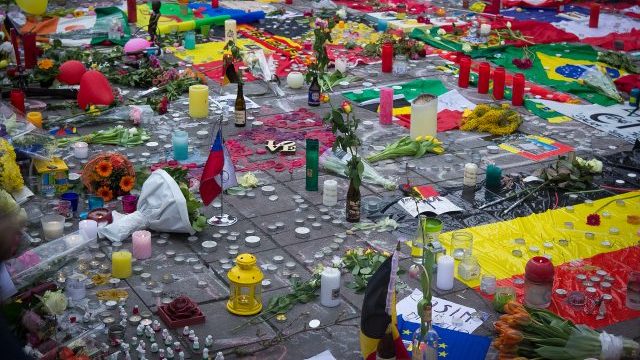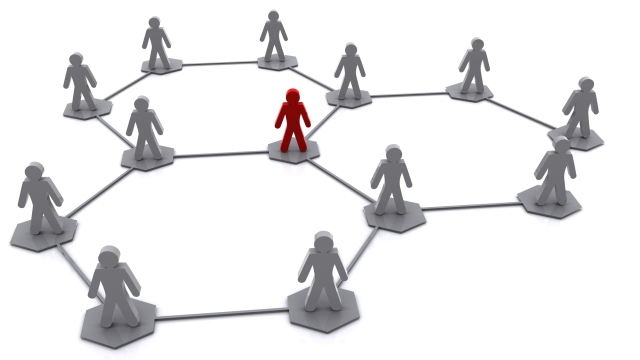
Mainstream and social media reaction to the Brussels terror attacks: has anything changed since Paris?
In a previous article I explored the mainstream and social media reaction to the 13 November 2015 terror attacks in Paris. The key issues discussed were:
- some people used the Paris terror attacks as an opportunity to express anti-immigration and other negative comments on social media;
- the reaction to the Paris terror attacks, both in social media and generally, was stronger than the reaction to another deadly terrorist attack that had occurred in Beirut, a non-western country, the day before, and included Facebook activating its Safety Check feature in Paris but not Beirut;
- both the mainstream and social media circulated misinformation in regard to the Paris terror attacks; and
- the mainstream media response to the Paris terror attacks appeared to not face the same level of scrutiny as the social media response.
On 22 March 2016, terrorist attacks occurred at Brussels Airport and a Brussels metro station. Has the mainstream and social media response to these Brussels terror attacks been any different to the response to the Paris terror attacks?
Expressing anti-immigration and other negative comments on social media
An opinion piece in The Gulf Today reports that, just as occurred with the Paris terror attacks, some people have used the Brussels terror attacks as an opportunity to express anti-immigration and other negative comments on social media:
It didn’t take long for some social-media-savvy Neanderthals to craft their careful messages of bile, determined, before the blood of the dead has even dried, to score political points and lead the charge against a considered approach to terror attack response. For them, bombs going off in Belgium validates all their preconceptions that the EU = immigrants, immigrants = Muslims and Muslims = terrorism.
A stronger reaction than to terror attacks in non-western countries
Just as occurred with the Paris terror attacks, the social media, community and government reactions to the Brussels terror attacks have been criticised for being disproportionate to the response to other similar recent terror attacks, for example in Ankara:
In the wake of the explosions, people took to social media to share cartoons in solidarity and the term #JeSuisBruxelles trended for much of the day on Twitter.
Across Europe, monuments such as the Eiffel Tower in Paris and Berlin’s Brandenburg Gate were illuminated in the colours of the Belgian flag out of respect for the victims. In Brussels, thousands gathered to create an improvised memorial using chalk to write messages of respect and defiance.
However, many pointed out the differences in the way people reacted to the Brussels attacks in comparison to those in Ankara.
A difference this time is that a number of media commentators have sought to try to explain the disproportionate reactions, arguing that they aren’t due to racism or religious intolerance.
For example, Carl Miller expresses the view in Newsweek that the differences have come about because of our “concentric circles of attention and attachment”:
The majority of us pay most attention to what happens to our families first, and give most thought to how we can help them. Our circles of belonging and support then gradually creep outwards: our immediate communities, maybe a civic or faith group, our village, town or borough, our nation, the nations around us, and so on.
In a further example, Will Gore argues in The Independent that the differences are due instead to fear:
The greater focus on Brussels than Ankara, then, is not about race or religion but fear. People in this country are appalled by terror attacks in Turkey (or Pakistan or Mali or Burkina Faso); but are much more likely to be scared by what they see in a familiar-feeling western capital – if it can happen there, it can happen here. The solidarity shown in the aftermath of massacres in France and Belgium is as much a coping mechanism to deal with this fear as it is a simple expression of sympathy for the loss of strangers’ lives.
Concerns have also again been expressed in regard to Facebook’s Safety Check feature, but for a different reason. This time Facebook was criticised for the delayed activation of Safety Check:
The tool is meant to allow people to easily tell their friends that they are safe in the wake of a disaster. If Facebook guesses that a user might be in an affected area, then they can mark themselves safe and have that message appear for their friends.
But the tool wasn’t initially turned on in the wake of the apparent attacks in Belgium. Many criticised Facebook for not doing so, especially given that phone networks are largely unavailable in Brussels.
Circulation of misinformation
Just as there was in the wake of the Paris terror attacks, misinformation has been circulated in regard to the Brussels attacks. However, in contrast to the Paris terror attacks, statements issued by the Brussels authorities have been the primary source of misinformation and confusion:
As Tony Katz reported on The Morning News, there is a massive amount of misinformation and confusion coming out of Brussels following the terrorist attacks that left 34 dead.
Scrutiny of the mainstream media
Following the Paris terror attacks, a Bing news search using the keywords “Paris media” found numerous articles discussing the role of social media after the Paris attacks, but located very few questioning the response of the mainstream media.
By contrast, a Bing news search using the keywords “Brussels media” reveals a more balanced mix of articles questioning the response of the mainstream media and articles questioning the response of social media.
Image source: Brussels 23 March 2016 – Gathering at the Bourse by Valentina Calà is licensed by CC BY-SA 2.0.
Also published on Medium.






